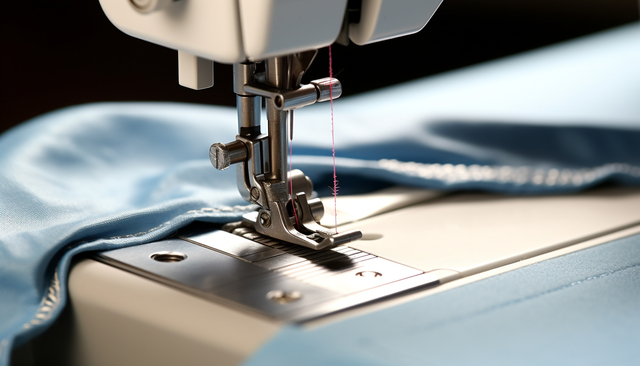Empowering the Fashion Industry with Financing Solutions

Across a range of industries, Credebt® continues to look for exciting companies to partner with and assist with financing solutions. Currently, we are working with a fashion company that imports fabrics and cotton to manufacture a wide range of stylish, high-quality women’s clothing ranging from casual sportswear to elegant office attire. We are helping them to facilitate trade transactions with their suppliers to meet the changing consumer preferences and demands. From this experience, we have added to our knowledge of the fashion industry that stems back to 2015 when we began financing uniforms for Ireland’s armed forces. From this potential originator, we learnt how they cater to their customers’ fashion desires.
The fashion industry has undergone a remarkable evolution over the years, and even more so since Credebt® began financing this sector 10 years ago, adapting to changing trends and technologies. The sector encompasses various aspects such as design, manufacturing, marketing and retail. It dictates consumer’s clothing choices and mirrors societal values, cultural trends and economic dynamics. With a vast network of designers, stylists, models, photographers and retailers, the industry thrives on innovation, creativity and continual advancement. This fast-paced environment requires a keen eye for trends, exceptional attention to detail and a profound understanding of consumer behaviour. From luxury to affordable fashion, the industry caters to a diverse range of consumer preferences and budgets while setting new standards of style and sophistication. It is a realm where creativity intersects with commerce and where individual expression merges with global influences to shape the way we present ourselves to the world.
The supply chain of the fashion industry is an intricate network that spans across the globe, connecting manufacturers, suppliers and retailers. Some of the top manufacturers in the fashion industry are in countries like China, Bangladesh, Vietnam and India, where production costs are relatively lower. These manufacturers source raw materials from various parts of the world, such as cotton from the United States and Greece and silk from China and India. Once the materials are sourced, the manufacturing process begins, involving a series of steps including cutting, sewing and finishing. The finished goods are then transported to distribution centres or directly to retailers through a complex supply chain of logistics providers. This system enables the fashion industry to deliver trendy and fast-changing products to consumers worldwide in a timely manner. Each step in the supply chain plays a crucial role in ensuring efficiency and quality in the production and distribution of fashion goods.
Looking ahead, the future of the fashion industry is likely to be shaped by trends towards sustainability, inclusivity and technological innovation. Sustainable fashion, which focuses on minimising environmental impact and promoting ethical production practises, is gaining traction among consumers and industry leaders alike. Technological innovations such as 3D printing, virtual reality and artificial intelligence are also transforming the way fashion is designed, produced and marketed. These technologies are not only making the industry more efficient and cost-effective but also opening new possibilities for creativity and customisation. Inclusivity and diversity are becoming increasingly important in the fashion industry, with calls for greater representation of different body types, ethnicities and backgrounds in campaigns and on the runway. The industry is gradually moving towards a more inclusive and diverse future, reflecting the diversity of the global population.
Financing will continue to play a crucial role in the fashion industry, as it enables designers to turn their creative vision into reality. From sourcing high-quality materials to manufacturing garments and marketing their brand, every aspect of the fashion business requires finance. Without adequate financing, designers may struggle to produce their collections, reach their target market and ultimately grow their brand. Credebt® offers financing solutions to fashion businesses striving to unlock new opportunities for growth and innovation in an increasingly competitive industry.
